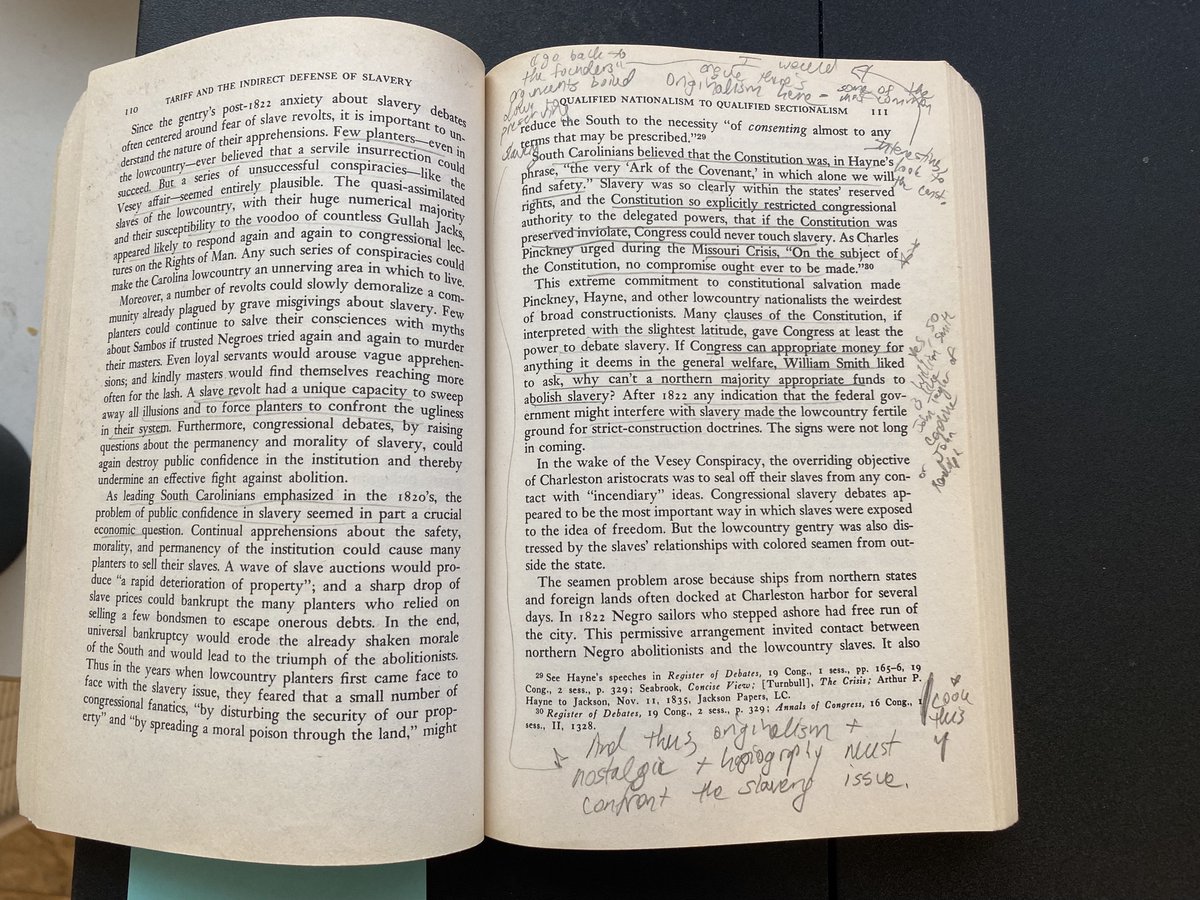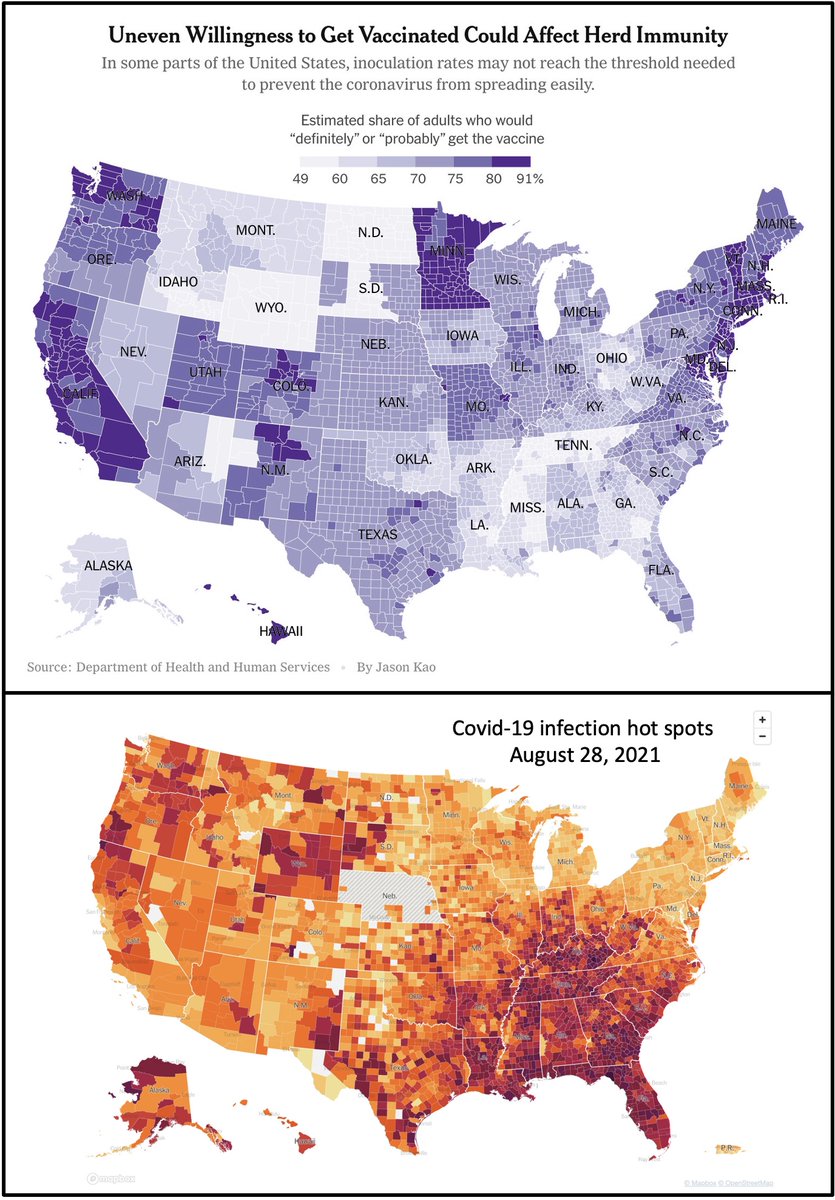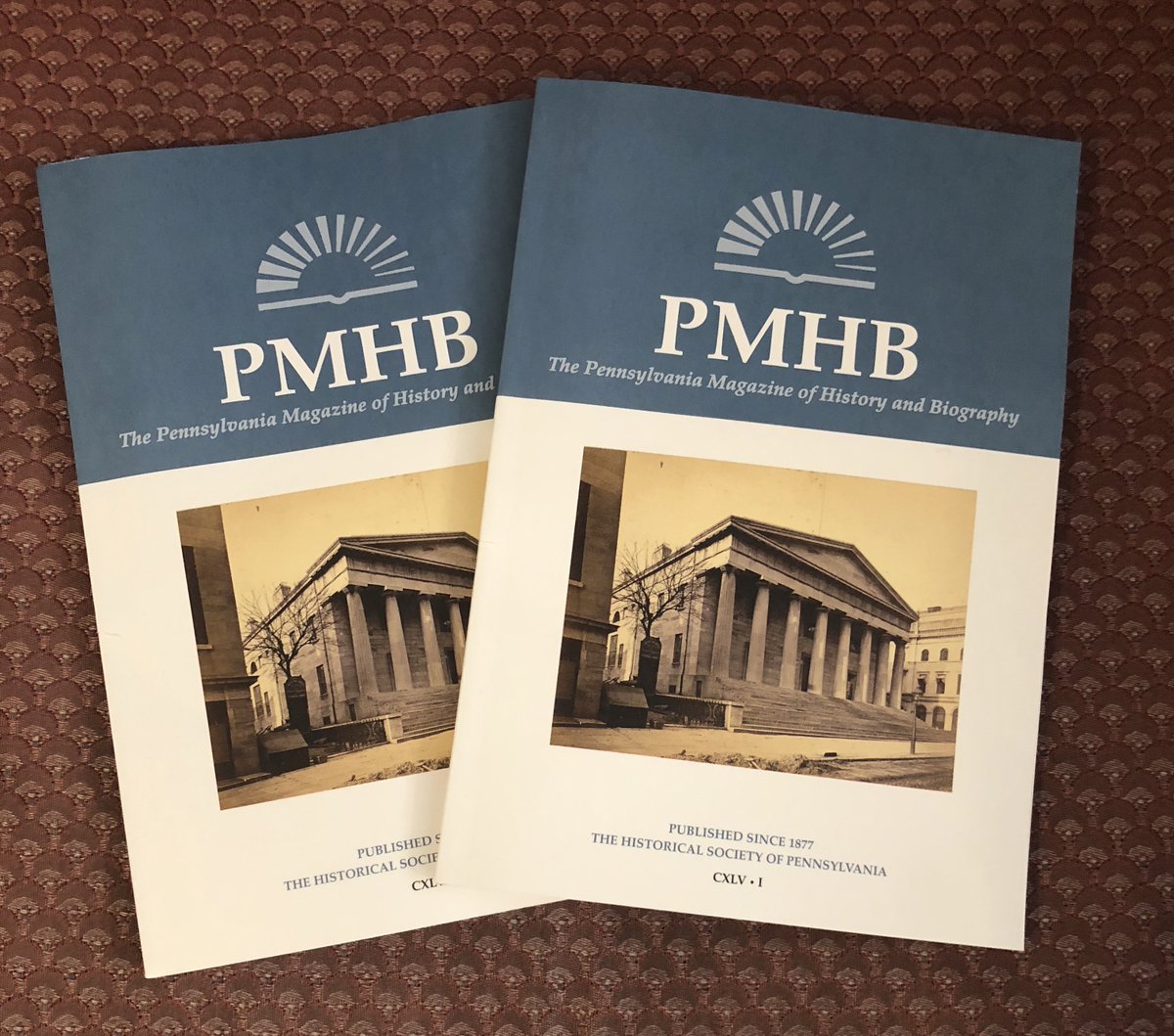
just when I thought I was going to have a productive day of grading after two lackluster days, there's some Twitter stuff going on about political economy of slavery that maybe doesn't *demand* my attention, but sure is important, I think.
The connection of slavery and limited government / anti-tax / anti-tariff / strict constructionism on the Constitution in the South is fairly well known among historians but I did want to provide some evidence in the form of quotes from William Freehling
This is not to say that contradictions are absent -- all ideologies have contradictions. Still, I think the limited government - slavery connection was very well apparent in the South, and still has long-term consequences as @arielronid recently talked about in his Slate article
Big picture: debates in the antebellum South about taxation, majority rule, the Constitution, tariffs, etc, are almost always informed by and influenced at their core by desires to protect slave property. @arielronid @joefrancis505 



• • •
Missing some Tweet in this thread? You can try to
force a refresh
















